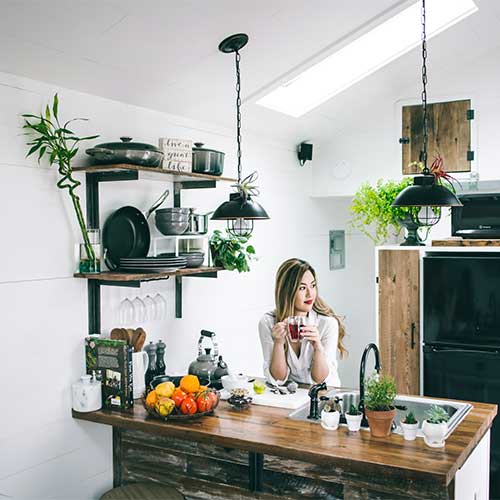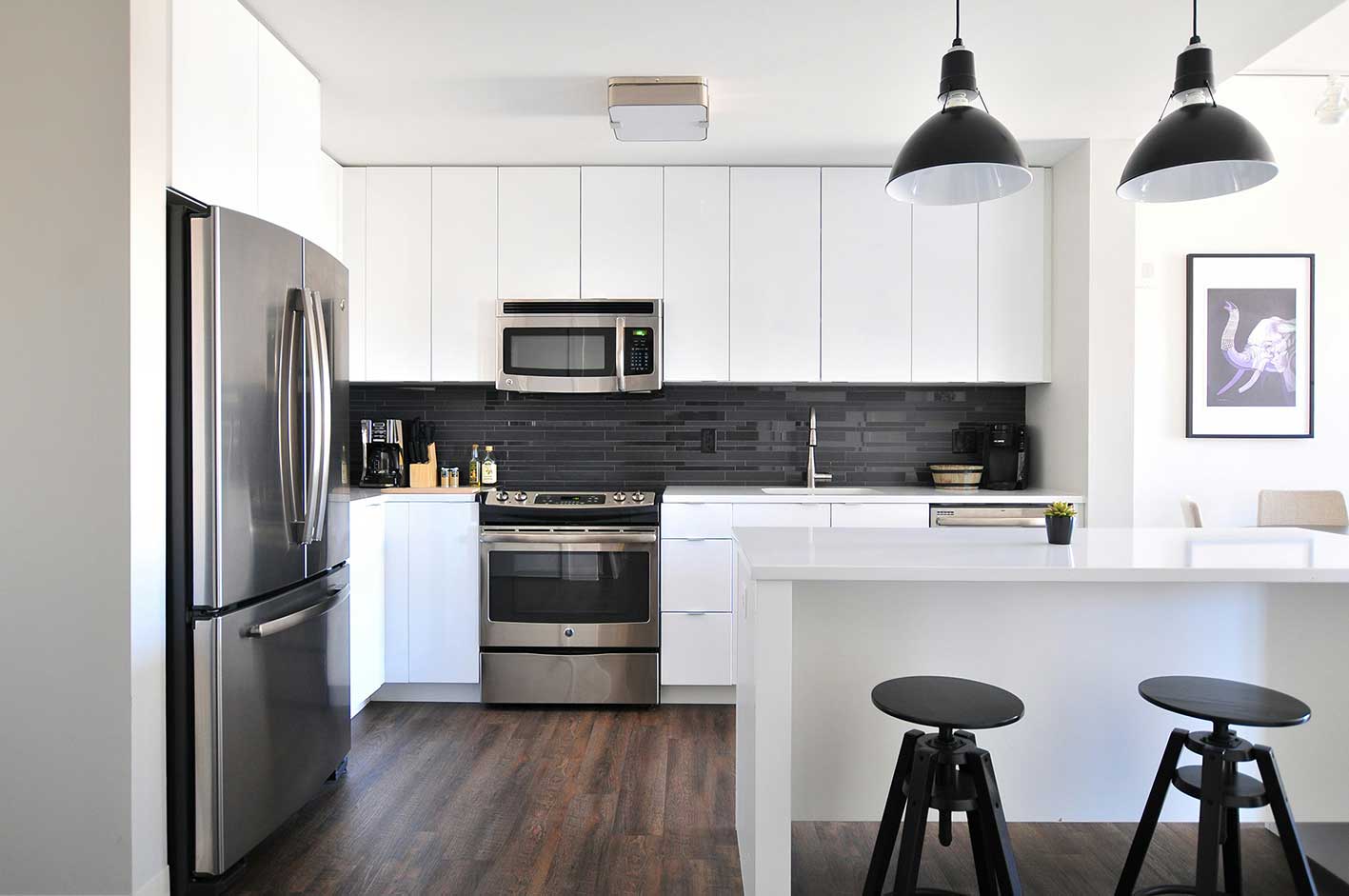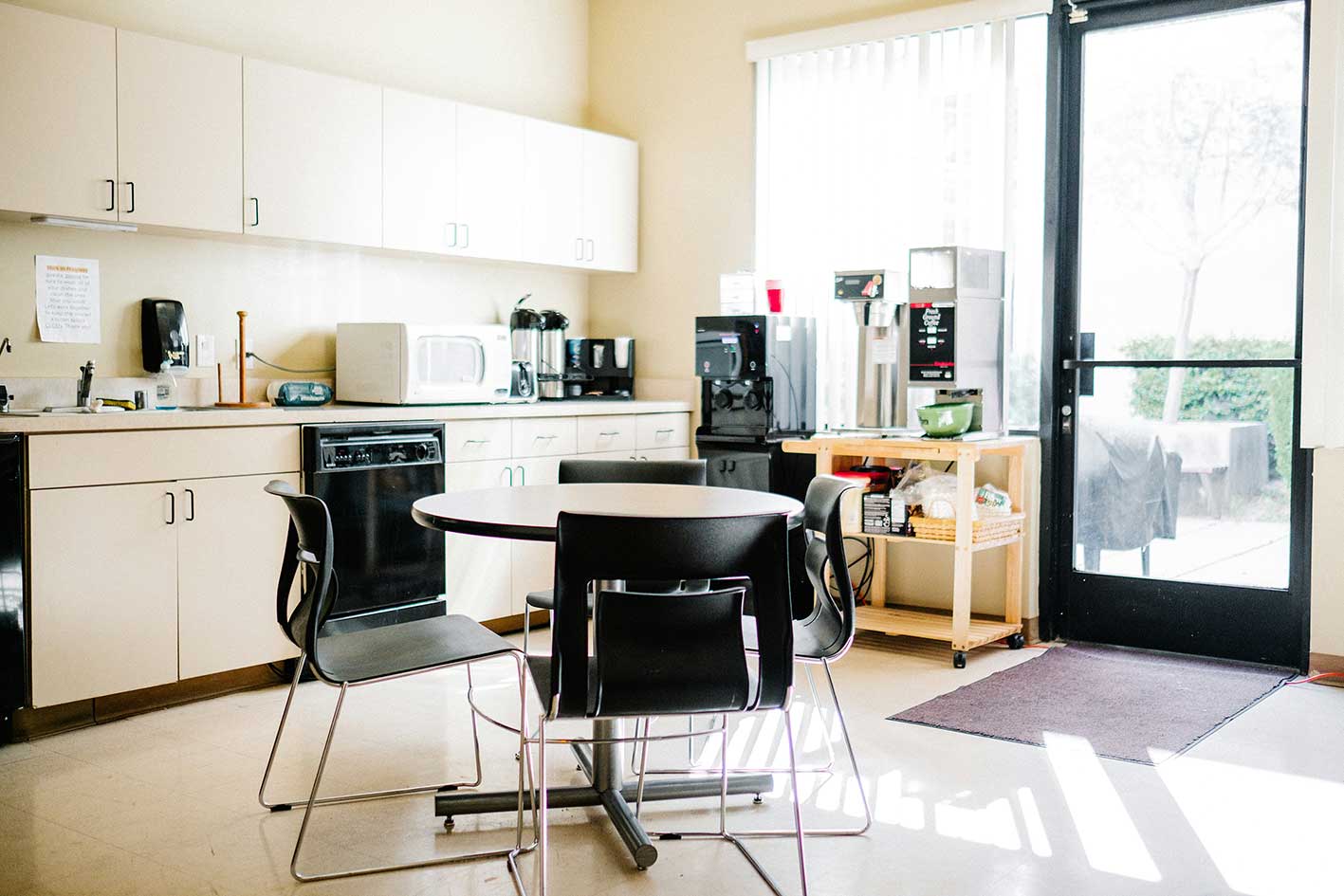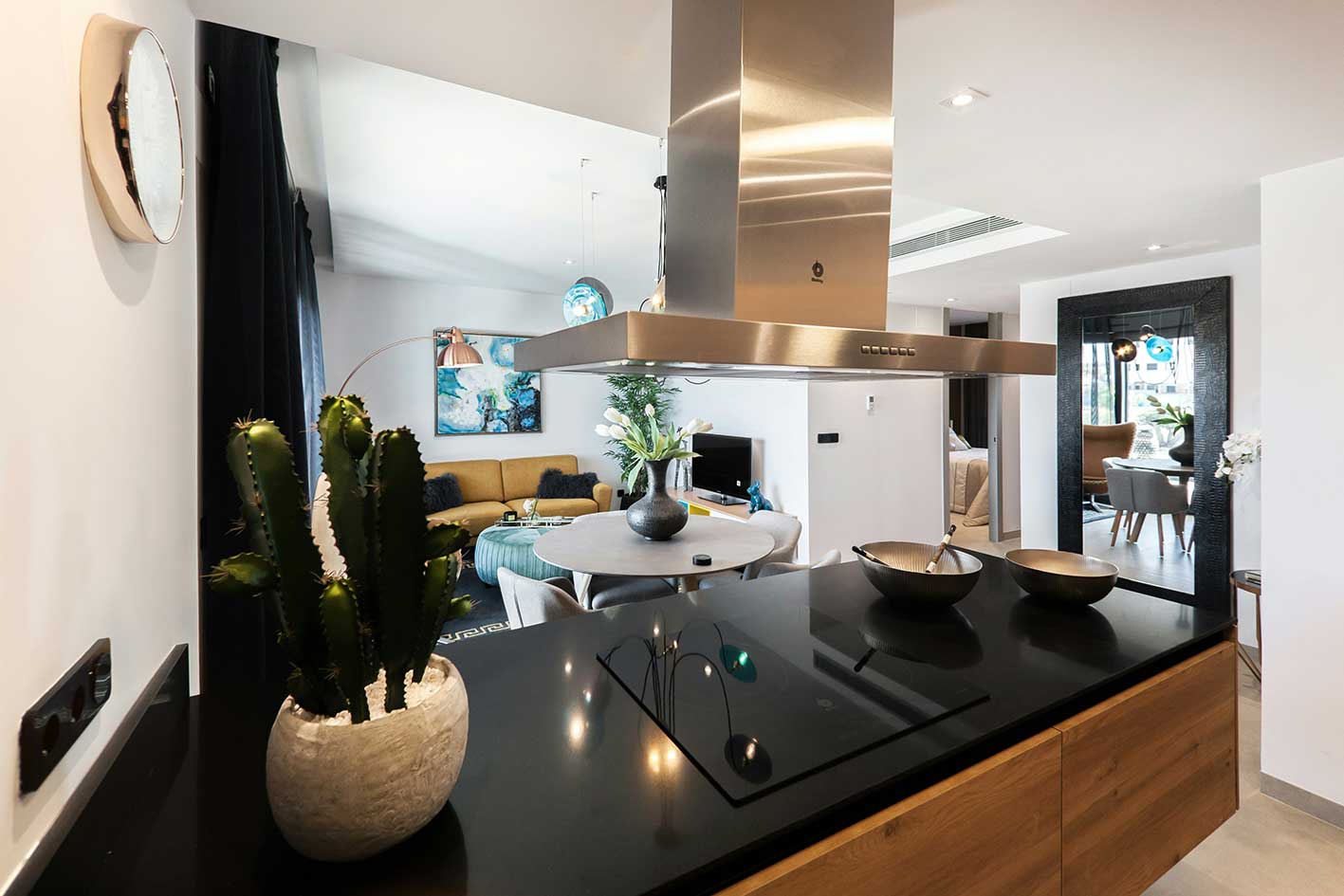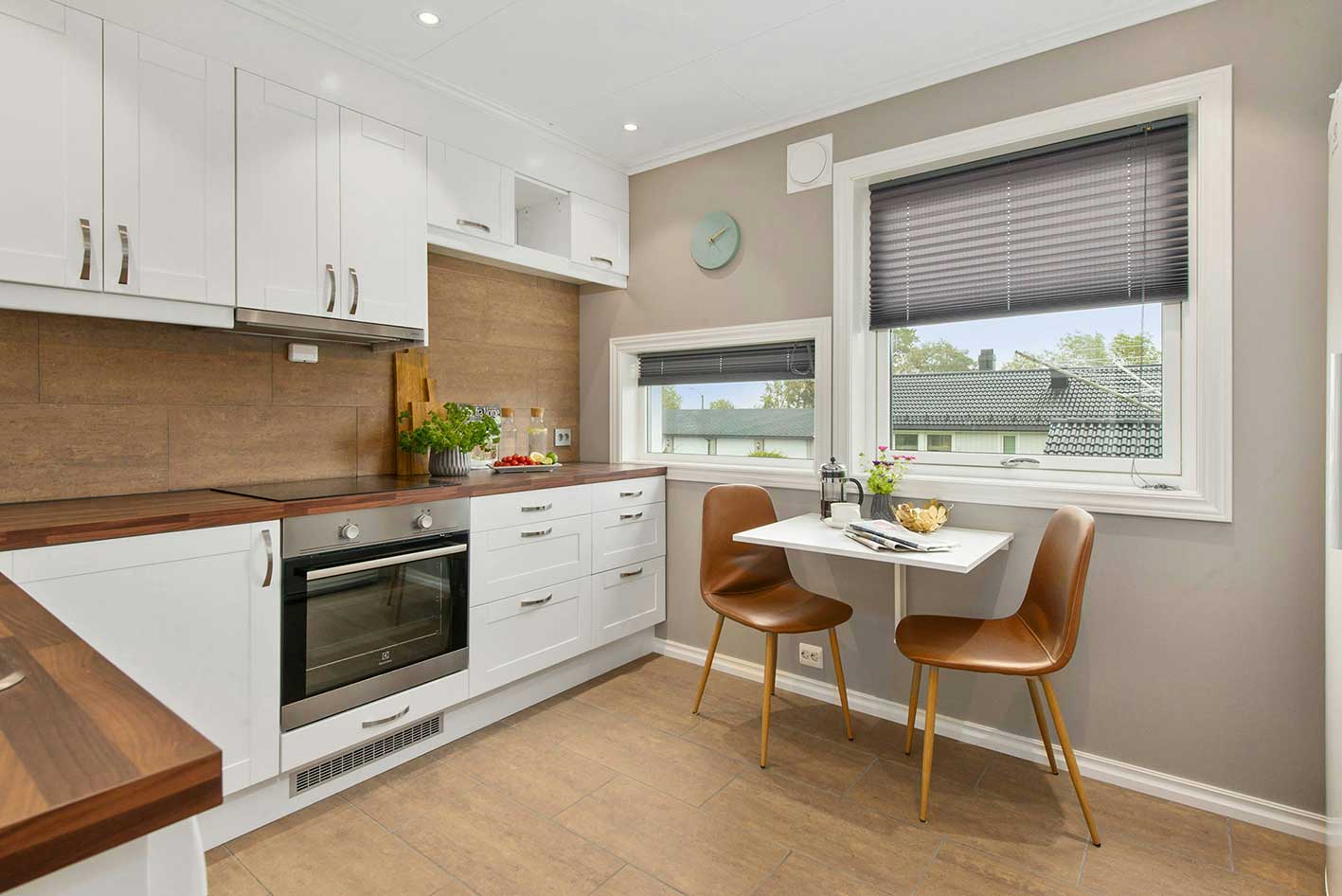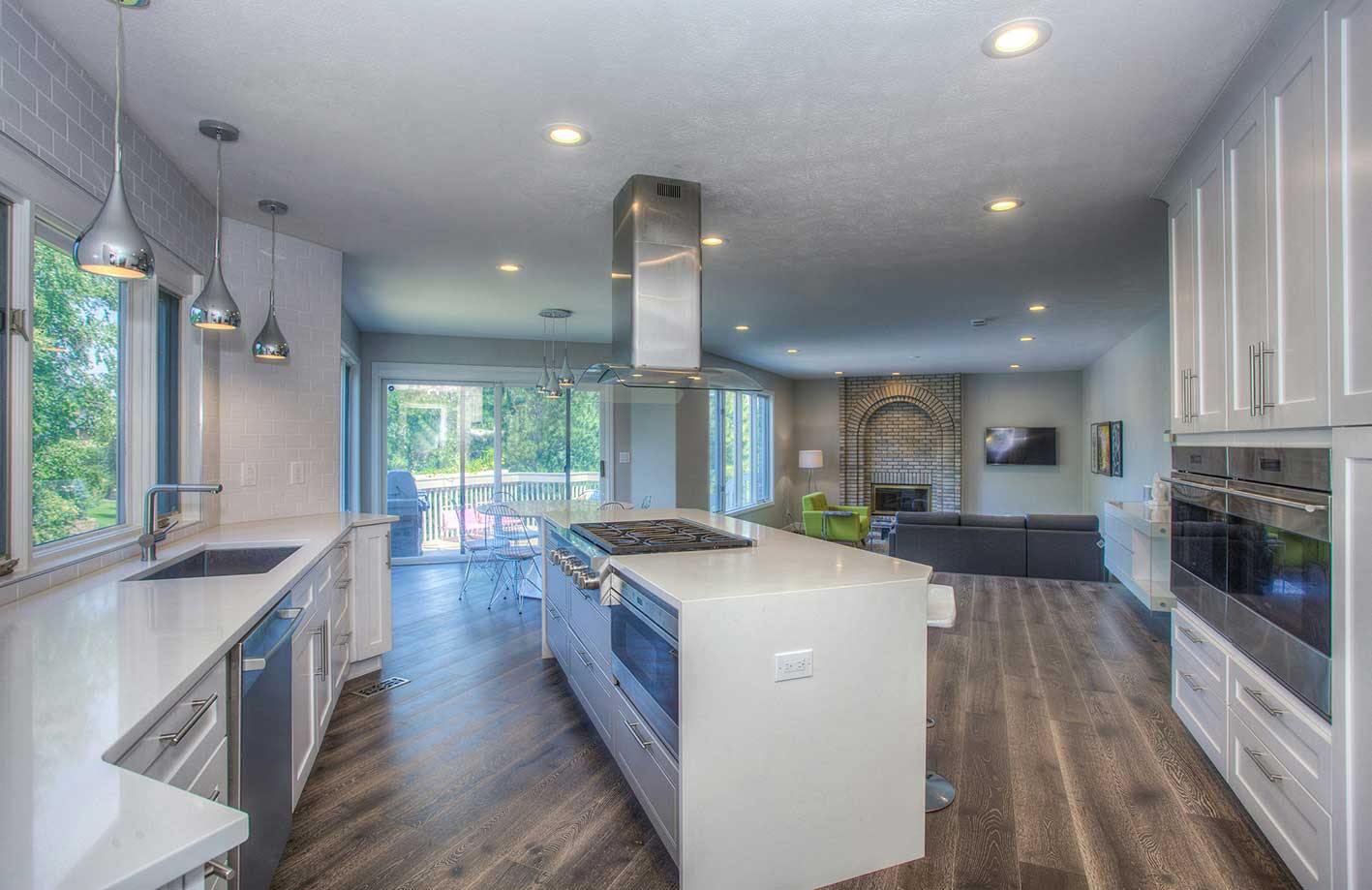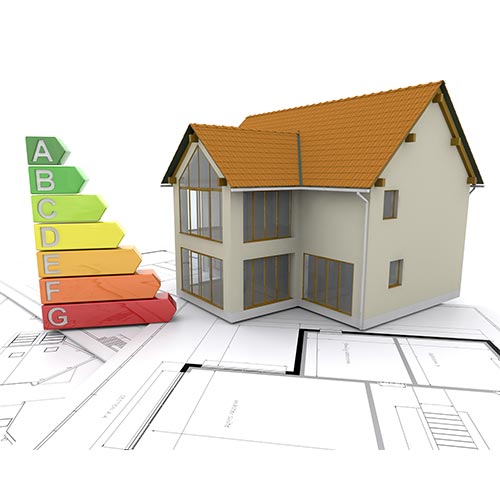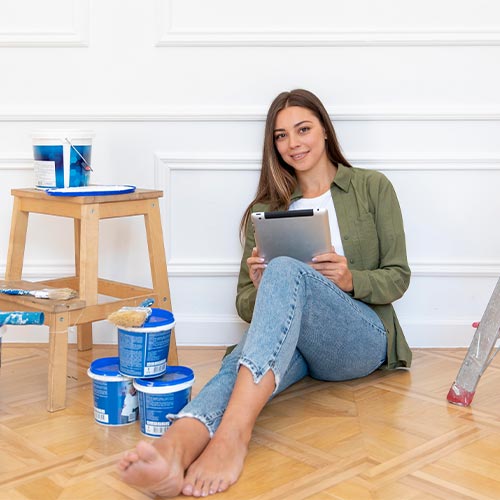Introduction: The Importance of Sustainable Kitchen Materials
In today’s world, where environmental consciousness is no longer a choice but a necessity, the role of sustainable kitchen materials has become more significant than ever. Kitchens are central to every home, and incorporating sustainable kitchen materials into their design not only enhances aesthetics but also ensures a healthier and greener living environment. Whether you’re renovating your kitchen or building one from scratch, choosing sustainable kitchen materials helps reduce your carbon footprint, conserve resources, and create a lasting impact on the planet.
The concept of sustainable kitchen materials revolves around using resources that are renewable, durable, and eco-friendly. From reclaimed wood and bamboo for cabinetry to recycled quartz and green concrete for countertops, there is a wide array of sustainable kitchen materials to choose from. These materials are not only stylish but also offer exceptional functionality, proving that sustainability does not mean compromising on quality or design.
Moreover, sustainable kitchen materials contribute to healthier indoor air quality by reducing harmful emissions. For instance, low-VOC paints and finishes are pivotal in maintaining a safe and non-toxic environment. By embracing sustainable kitchen materials, you invest in solutions that are designed to last longer, require less maintenance, and ultimately save money in the long run.
more:view interior decoration equipment
From eco-friendly flooring options like cork and engineered wood to energy-efficient lighting, every element of your kitchen can be crafted using sustainable kitchen materials. This holistic approach ensures that your kitchen becomes a model of sustainability, where style meets responsibility. In this guide, we’ll delve into the various types of sustainable kitchen materials, their benefits, and how they can transform your space into an eco-friendly haven while meeting your practical and aesthetic needs.
By integrating sustainable kitchen materials into your design, you not only contribute to a better planet but also create a timeless kitchen that aligns with modern values. Sustainable living begins with choices, and sustainable kitchen materials are the perfect place to start.
The kitchen is the heart of every home, where family and friends gather to share meals and memories. In today’s eco-conscious world, choosing sustainable kitchen materials has become a priority for homeowners who wish to minimize their environmental footprint. But what exactly does “sustainable” mean in the context of kitchen design? Simply put, it refers to materials that are environmentally friendly, responsibly sourced, and built to last.
In this article, we’ll explore the numerous advantages of using sustainable materials in your kitchen, the various eco-friendly options available, and how these choices can transform your home into a greener space.
Benefits of Using Sustainable Kitchen Materials
1. Reducing Environmental Impact
By choosing materials like reclaimed wood or recycled metals, you contribute to reducing deforestation and waste in landfills. Sustainable materials often require less energy to produce, which helps lower carbon emissions.
2. Cost-Effectiveness in the Long Run
While some sustainable materials might have a higher upfront cost, their durability and energy efficiency make them a cost-effective choice over time. For example, bamboo flooring or quartz countertops last for decades with minimal maintenance.
3. Boosting Property Value
Homes designed with eco-friendly materials are increasingly in demand. By incorporating sustainable kitchen materials, you can significantly enhance your property’s resale value.
Sustainable Materials for Kitchen Cabinets
1. Reclaimed Wood
Reclaimed wood is both beautiful and sustainable. Sourced from old buildings and furniture, it gives your kitchen a rustic charm while reducing the need for new timber.
2. Bamboo
Bamboo is a fast-growing plant that’s ideal for cabinets. It’s durable, renewable, and adds a modern aesthetic to your kitchen.
3. Low-Formaldehyde MDF
Medium-density fiberboard (MDF) made with reduced formaldehyde emissions ensures better air quality in your home, making it a healthier choice.
Sustainable Countertop Materials
1. Recycled Quartz
Recycled quartz countertops are made from leftover stone and resin. They’re stylish, durable, and available in a wide range of colors.
2. Green Concrete
Concrete infused with recycled materials such as fly ash or slag is both sturdy and eco-friendly. It offers a unique industrial look for modern kitchens.
3. Soapstone
Soapstone is a natural, non-porous material that resists stains and bacteria, making it an excellent choice for a sustainable kitchen.
Eco-Friendly Flooring Options
1. Engineered Hardwood
Engineered hardwood uses less raw wood than traditional hardwood flooring and is often made with recycled materials.
2. Cork Flooring
Harvested from the bark of cork oak trees, cork flooring is renewable, soft underfoot, and excellent at absorbing sound.
3. Recycled Ceramic Tiles
Ceramic tiles made from recycled glass or porcelain are a stylish and durable flooring option for eco-conscious homeowners.
Sustainable Paints and Finishes
1. Low-VOC Paints
Traditional paints release harmful chemicals into the air. Low-VOC (volatile organic compounds) paints are safer for both your family and the environment.
2. Natural Oils and Waxes
Finishes made from natural oils like linseed or beeswax are biodegradable and add a protective sheen to wooden surfaces.
Sustainable Kitchen Accessories
1. Recycled Stainless Steel
Using recycled stainless steel for sinks and hardware not only reduces waste but also offers a sleek, modern look.
2. Eco-Friendly Cookware
Opt for cookware made from recycled aluminum or cast iron for an environmentally responsible kitchen.
Sustainable Lighting Solutions
1. LED Lighting
LED bulbs use significantly less energy than incandescent or CFL bulbs, making them an essential choice for a sustainable kitchen.
2. Maximizing Natural Light
Designing your kitchen to maximize sunlight reduces the need for artificial lighting and creates a warm, inviting atmosphere.
Maintenance Tips for a Sustainable Kitchen
- Use eco-friendly cleaning products like vinegar or baking soda.
- Regularly maintain appliances to ensure energy efficiency.
- Reduce water waste by fixing leaks promptly and using low-flow faucets.
Builpire: Transforming Your Space, One Design at a Time
Builpire is your trusted partner for interior decoration and kitchen design, offering a seamless experience from concept to completion. Specializing in personalized home and kitchen transformations, Builpire goes beyond design by acting as your dedicated contractor. We manage every detail, ensuring that your dream space comes to life with expertise and style. Our unique platform allows you to explore a curated selection of high-quality products essential for your interior project. As you browse, you can effortlessly add items to your personalized contract, guaranteeing that each element is tailored to fit your vision and budget. With Builpire, design meets functionality, delivering spaces that inspire and elevate your everyday living. Discover the possibilities with Builpire—where exceptional design becomes your reality .
For more ideas and guidance, follow us on Instagram.
Conclusion
Sustainable kitchen materials are more than a trend—they’re a commitment to a greener, healthier planet. From countertops to flooring, there are endless options to create a kitchen that aligns with your values. By making these choices, you’re not just designing a beautiful space; you’re investing in the future of our planet.
10 FAQs About Sustainable Kitchen Materials
- What are the most sustainable materials for kitchen countertops?
Recycled quartz, green concrete, and soapstone are excellent choices for eco-friendly countertops. - Is bamboo a durable material for kitchen cabinets?
Yes, bamboo is highly durable, renewable, and resistant to moisture, making it ideal for cabinets. - How can I make my kitchen more sustainable without a full renovation?
Small changes like using LED lighting, low-VOC paints, and eco-friendly cookware can make a significant impact. - Are recycled materials more expensive than traditional options?
While some recycled materials may have a higher upfront cost, their longevity and energy efficiency often offset the initial investment. - What flooring options are both sustainable and durable?
Cork, recycled ceramic tiles, and engineered hardwood are excellent sustainable flooring choices. - Do sustainable materials require special maintenance?
Most sustainable materials are designed for longevity and require minimal maintenance, similar to traditional options. - What is the benefit of low-VOC paints?
Low-VOC paints improve indoor air quality by reducing harmful chemical emissions. - Can I find sustainable options for kitchen sinks?
Yes, recycled stainless steel is a popular sustainable material for sinks. - How does using sustainable materials increase home value?
Homes with eco-friendly features are increasingly sought after, which can boost their market value. - What are some budget-friendly sustainable materials?
Reclaimed wood, bamboo, and recycled ceramic tiles are cost-effective options for an eco-friendly kitchen.

